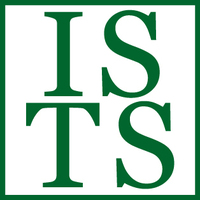Privacy - Now What?
Daniel Weitzner is the second speaker in the series "Surveillance in the Age of Big Data", co-sponsored by ISTS and the Computer Science Colloquium.
Abstract: The chorus of privacy lamentation has been growing apace with the growth of the Internet, but has come to a head with Edward Snowden's revelations about bulk collection and analysis of metadata. Cynics will see these developments as the final nail in the coffin, declaring that privacy ends with the flowering of the digital age. But this view profoundly misunderstands the democratic values behind privacy. Worse, it ignores promising new efforts to reconstruct privacy for an era in which even though almost everything will be collected, much of it analyzed, we can still preserve the fundamental values that make up our privacy traditions. Drawing on the Obama Administration's new Big Data privacy initiative ("Big Data: Seizing Opportunities, Preserving Values") and the Consumer Privacy Bill of Rights issued by the White House in 2012, this is a talk about rediscovering the foundations of privacy: freedom of association, protection from discrimination and limiting the tyranny of large institutions. In returning to privacy basics we see that real privacy depends little on 'notice' but places a high value on respect for context and individual control. Pseudo-contractual notions of 'choice' are unhelpful to users, but respect for the context of relationships matters. Finally, secrecy through encryption or barriers to the free flow of information are generally fig-leaves over privacy risks, but accountability for how information is actually used can build a world in which real privacy exists alongside a vibrant, open information society.
Bio: Daniel Weitzner is the Director of the MIT Computer Science and Artificial Intelligence Laboratory Decentralized Information Group and teaches Internet public policy in MIT’s Computer Science Department. His research includes development of accountable systems architectures to enable the Web to be more responsive to policy requirements.
From 20011-2012, Weitzner was the United States Deputy Chief Technology Officer for Internet Policy in the White House. He led initiatives on privacy, cybersecurity, Internet copyright, and trade policies promoting the free flow of information,. He was responsible for the Obama Administration’s Consumer Privacy Bill of Rights and the OECD Internet Policymaking Principles.
Weitzner has been a leader in the development of Internet public policy from its inception, making fundamental contributions to the successful fight for strong online free expression protection in the United States Supreme Court, and for laws that control government surveillance of email and web browsing data.
Weitzner is a founder of the Center for Democracy and Technology, led the World Wide Wed Consortium’s public policy activities, and was Deputy Policy Director of the Electronic Frontier Foundation. In 2012 he was named to the Newsweek/Daily Beast Digital Power Index as a top ‘Navigator’ of global Internet public policy and in 2013 he received the International Association of Privacy Professional’s Leadership Award.
